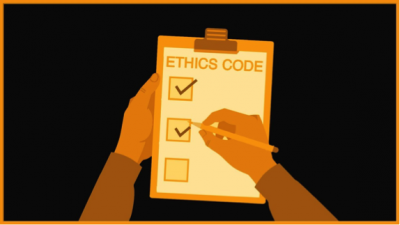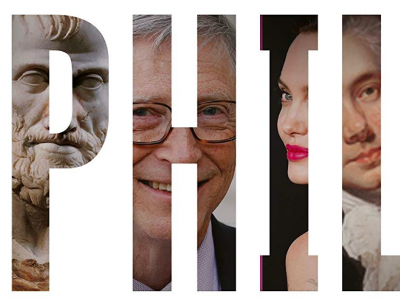Chances are if you work in the philanthropic and nonprofit sector, or are preparing to do so, then the idea that ethics matters seems obvious. An awareness of ethics also matters. Awareness doesn’t come with a guide on how to hande complex situations, but it can provide a framework to identify priorities and inconsistencies and to interpret why others, who are as well-intentioned and well-informed as ourselves, may nevertheless approach the same problem very differently.
What does Batman have to do with philanthropy? A series about ethics (or lack thereof) in our sector
 Curated by Calum Carmichael. In my work with students in Carleton’s Master of Philanthropy and Nonprofit Leadership program, I’ve heard some of them describe a career in the sector as being more of a vocation than a job, the career’s significance tied to factors apart from a pay cheque or pension plan – important though such things may be. Will it ultimately enable them to improve the well-being of others, or at least increase the chances of this? Will it require them to be conscientious, and to fulfill responsibilities and duties with care? Will the work resonate with the values or character traits they see as personally defining?
Curated by Calum Carmichael. In my work with students in Carleton’s Master of Philanthropy and Nonprofit Leadership program, I’ve heard some of them describe a career in the sector as being more of a vocation than a job, the career’s significance tied to factors apart from a pay cheque or pension plan – important though such things may be. Will it ultimately enable them to improve the well-being of others, or at least increase the chances of this? Will it require them to be conscientious, and to fulfill responsibilities and duties with care? Will the work resonate with the values or character traits they see as personally defining?
These three questions relate to concerns about outcomes, process and character, and lead to three types of ethical frameworks. Because an awareness of ethics matters, PANL Perspectives presents a multi-part series on these frameworks, featuring articles and videos from experts in our sector.
 1. Consequentialism ties the moral worth of decisions or actions to their outcomes. Better philanthropy comes from better results. Imagine checking off the boxes. Dan Wilson discusses this in his article, “Better philanthropy through better outcomes: The experience of the Ontario Trillium Foundation.”
1. Consequentialism ties the moral worth of decisions or actions to their outcomes. Better philanthropy comes from better results. Imagine checking off the boxes. Dan Wilson discusses this in his article, “Better philanthropy through better outcomes: The experience of the Ontario Trillium Foundation.”
 2. Deontology ties the moral worth of decisions or actions to the duties or principles that direct them. Better philanthropy comes from better codes or guidelines. Picture dominoes falling. Andrea McManus, co-founder of ViTreo, a fundraising and nonprofit leadership development firm, shares her perspective on whether codes of professional practice for fundraisers leads to more if not better philanthropy.
2. Deontology ties the moral worth of decisions or actions to the duties or principles that direct them. Better philanthropy comes from better codes or guidelines. Picture dominoes falling. Andrea McManus, co-founder of ViTreo, a fundraising and nonprofit leadership development firm, shares her perspective on whether codes of professional practice for fundraisers leads to more if not better philanthropy.
 3. Virtue theory ties the moral worth of decisions or actions to the character traits of decision-makers or actors. Better philanthropy comes from better philanthropists. Think of Batman’s alter ego, philanthropist Bruce Wayne. Sharilyn Hale, a philanthropic advisor, shares her perspective about a “better philanthropist” when working with individuals and families.
3. Virtue theory ties the moral worth of decisions or actions to the character traits of decision-makers or actors. Better philanthropy comes from better philanthropists. Think of Batman’s alter ego, philanthropist Bruce Wayne. Sharilyn Hale, a philanthropic advisor, shares her perspective about a “better philanthropist” when working with individuals and families.
Also, Paul Nazareth, who’s with the Canadian Association of Gift Planners, asks if better philanthropists create better philanthropy, especially as related to decolonizing our future and creating space for Black, Indigenous, and People of Colour (BIPOC) leaders:



